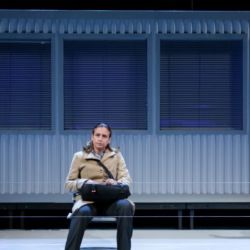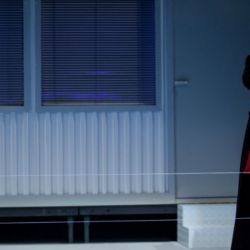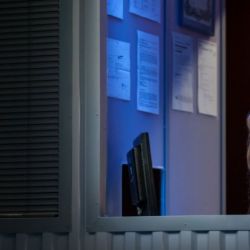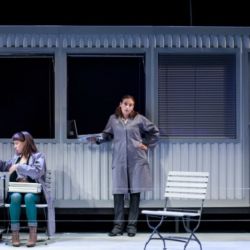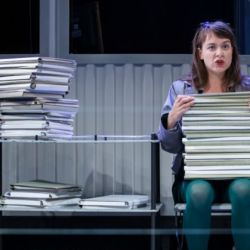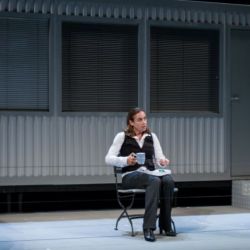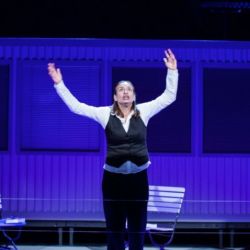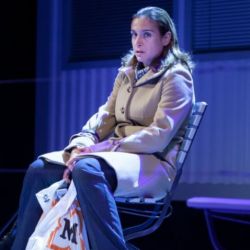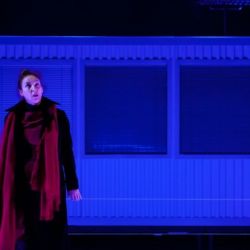Felicia Zeller (born in 1970 in Stuttgart) is a contemporary German writer engaging mainly in playwriting and media art. She also writes prose and radio plays, creates artistic productions in the area of new media and makes short films. She has written twenty dramatic texts, received numerous awards and achieved recognition in German and European theatres.
Her pivotal breakthrough came with the play Kasper & The Sea of Houses (2007) which opened on 20 January 2008 in Theater Freiburg. The production directed by Marcus Lobbes won the Audience award at the Mülheim Theatertage Festival and became a big hit in several German theatres.
Björn, a social worker employed at the bureau for the socially underprivileged, neglected and abused children, the so-called Kaspar Hausers of our time, is burnt-out. He has disappeared and nobody knows if he would be able to resume work. To his colleagues Anika, Barbara and Silvia he has left 104 unsolved cases on his desk, all stuffed in disorderly incomplete files and a pile of small loose sheets of papers scribbled with notes. They women have no idea where to begin dealing with his cases and share serious doubts about their own abilities as they too are constantly ʻoverburdenedʼ, just like many officials, whose concentration at work is being interrupted by reminiscences of many problematic ʻcasesʼ from the past. Their personal lives are a mess, they are plagued by doubts and try to avoid taking on responsibility and attempt to get rid of the problems with the back of the hand. As they numerous receive phone calls which generate additional notes that are getting lost in the chaotic pile of tragic destinies, Anika, Barbara and Silvia keep on chatting non-stop.
Kaspar & The Sea of Houses is not a social drama in the traditional manner of a realistic style, but rather a drama of words in which dramatic action is no longer present. It is words spoken by dramatic characters that constitute a portrayal of an inefficient and rigid system which has failed in terms of providing care for human beings. In the beginning the chatting of the social workers sounds like an amusing rock and roll, it seems as if we are dealing with a comedy, but gradually the tragic image of the world comes forward along with fragments of human destiny, which all demonstrates that the social workers and child-carers share with their ʻcasesʼ exactly the same feeling of powerlessness that reached impasse with regard to the system.
The dramatist drawing on he own experience is familiar with the tragic state of the matter in the area of the German social affairs, since she used to work in social services for a short time. Besides, she lives in the Berlin district of Neukölln, where cases described in her play are a part of everyday life. This is where the real 'sea of houses' exists; it is behind their walls that the Kaspar Hausers of our time live.
Kaspar & The Sea of Houses is a poignant and radically critical portrayal of contemporary European, German and Slovenian social system which destroys and kills human beings instead of taking care of them. It is a depiction of a system transforming sympathetic and supportive human beings into non-functional bureaucrats, emotionally and intellectually crippled people who are supposed to take care of others, although they are no longer capable of taking care of themselves. Kaspar & The Sea of Houses is a cruel comedy of life, which will undoubtedly resonate in the Slovenian social context too.
A poignant and radically critical portrayal of contemporary European, German and Slovenian social system which destroys and kills
Translator Mojca Kranjc
Director and Dramaturg Janez Pipan
Set Designer Sanja Jurca Avci
Costume Designer Leo Kulaš
Composer Damir Avdić
Lighting Designer Andrej Hajdinjak
Language Consultant Jože Volk
Cast
ANIKA has recently graduated from the Faculty of Social Work, a single mum of a 4-year old girl Liza Marija Grašič
BARBARA has been working in management for 20 years Barbara Medvešček
SILVIA keeps getting overburdened in her attempt to fill a widening gap between her exhaustion and a seeming lack of professional achievements Lučka Počkaj
Opening 19 September 2014
Performance duration: 1 hour and 30 minutes. No interval.


